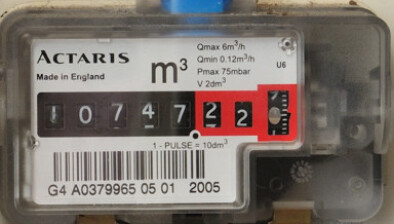Scots with electric heating pay ‘three times as much’ as gas users
 A new report has highlighted the use of expensive electric heating among low income households and the difficulty many have accessing support to switch to cheaper fuel sources.
A new report has highlighted the use of expensive electric heating among low income households and the difficulty many have accessing support to switch to cheaper fuel sources.
Research by Citizens Advice Scotland (CAS) found that as many as 11% of Scottish households are using electric heating, which is the most expensive form of domestic fuel – three times as costly as gas.
Up to 51% of this group are defined as being in fuel poverty, nearly twice as many as the population as a whole, and unlikely to access the support that is available or to switch to cheaper fuel sources.
Official figures show that 26.5% of all Scots are in fuel poverty, while the figure for gas users is 23%.
Publishing the Hard Wired Problems report, CAS energy spokesman Craig Salter said: “Electric heating is by far the most costly heating type in Scotland, yet many of the people who use it are those least able to afford it. So they are paying over the odds to heat their home.
“People are in this situation for a variety of reasons. In some cases electricity is the only source available, as gas supply pipes don’t reach their home. In other cases they are renting their home so have to accept whatever system the landlord has installed.
“The good news is that there are some excellent support services out there, but they are not reaching everyone who needs them. So we need to make sure that electricity users know they can access specialist support that is tailored to their needs.”
The CAS report provides insight into the nature and reach of services that provide support to households that rely on electric heating, and explores consumers’ experiences of using these services, and how services could be better supported.
Those who rely in electric heating often experience significantly higher heating costs, lower incomes and widespread disengagement from both the energy market and support services. As a result, this group often requires additional, holistic support to lower costs and resolve problems. However, many are not accessing the support that they need.
The report finds that there is a need for additional support to develop specialised, holistic advice services dealing with electric heating, efforts to improve awareness of existing support services, more specialised training for advisers, longer-term funding for advice services, and targeted support for upgrades to electric heating systems.
Key findings
Key research findings include:
Craig Salter added: “This report sheds light on the major challenges that are faced by households who rely on electric heating, and gives us valuable insight into how the reach of support services can be improved.
“We know that many of those who use electric heating find it to be unaffordable, or have to cut back on other essentials to pay the bills, due to factors including high costs, low incomes and inefficient systems. It is unacceptable that over half of these households are living in fuel poverty, and many have little choice over the type of heating they use due to living in areas off the gas grid or in rented accommodation. As our research has found, this group can face major challenges in accessing support and engaging in the market.
“This research sets out some key priorities to help ensure that specialised, holistic support is accessible to all electric heating customers that need it. These include additional support to develop specialised, holistic services dealing with electric heating, better provision of information on things like electric-only tariffs, more training for advisers, longer-term funding for advice services, and targeted support for heating upgrades.
“We hope that this research will help to highlight electric heating as an area that must be prioritised by policy makers, due to the severe detriment that we see among those who use it.”
Recommendations
Citizens Advice Scotland has called on the Scottish Government to provide additional support to programmes which deliver Scotland-wide advice and referral services, to develop and expand a bespoke service providing expert advice on specific issues associated with electric heating.
It has also urged energy regulator Ofgem, in conjunction with energy suppliers, to review the guidance that is available on resolving energy market issues that relate specifically to electric heating, and where necessary, additional clear guidance should be published and made easily accessible.
In order to help address the lack of consumer awareness of the support that is available, CAS said the Scottish Government should consider what additional resources could be made available to promote existing impartial advice and support services.
More extensive training should also be made available to advisers across different organisations on a Scotland-wide basis. The Scottish Government should facilitate the development of a detailed training module dealing with specific issues relating to electric heating in Scotland, the charity added.
CAS also recommended that governments and regulators should give consideration to where longer-term funding could be made available to organisations delivering support and that the potential for targeted support for upgrades to electric heating systems should be explored by governments and the regulator.
Scottish Renewables backed the report’s call for support to be available for those in need.
Senior policy manager Fabrice Leveque said: “Citizens Advice Scotland is right to raise the alarm about households using inefficient electric heating systems.
“These homes should receive support to switch to more efficient forms of electric heating such as heat pumps. Not only would this reduce their energy bills, it would help cut their carbon emissions by up to two thirds.
“The UK and Scottish Governments should ensure that fuel poor households are given an opportunity to switch to cheaper and more effective electric heating as a matter of urgency.”
Wayne Mackay of safety charity Electrical Safety First added: “We welcome this report, which shows a higher proportion of Scots are using electric heating than anywhere else in the UK – and many of them are the most vulnerable or worst off.
“It’s particularly important, as our research has found that electricity is the number one cause of domestic fires in Scotland; with disadvantaged and vulnerable groups – particularly older people - often among the most at risk from electrical accidents and fires.
“Worries about fuel bills means that many will try and minimise costs by using portable heaters, to avoid having to heat every room. But these have caused a number of house fires, mainly through misuse. Last year, Scottish Fire and Rescue Service reported that portable heaters were responsible for most of the heating equipment fires (67 out of 110) – and a third of fatalities from fires.
“We are urging people to take care when using these heaters. Always ensure they are placed on a level surface, away from inflammable materials – and don’t plug it into an extension lead, which can be overloaded and cause a fire.”






